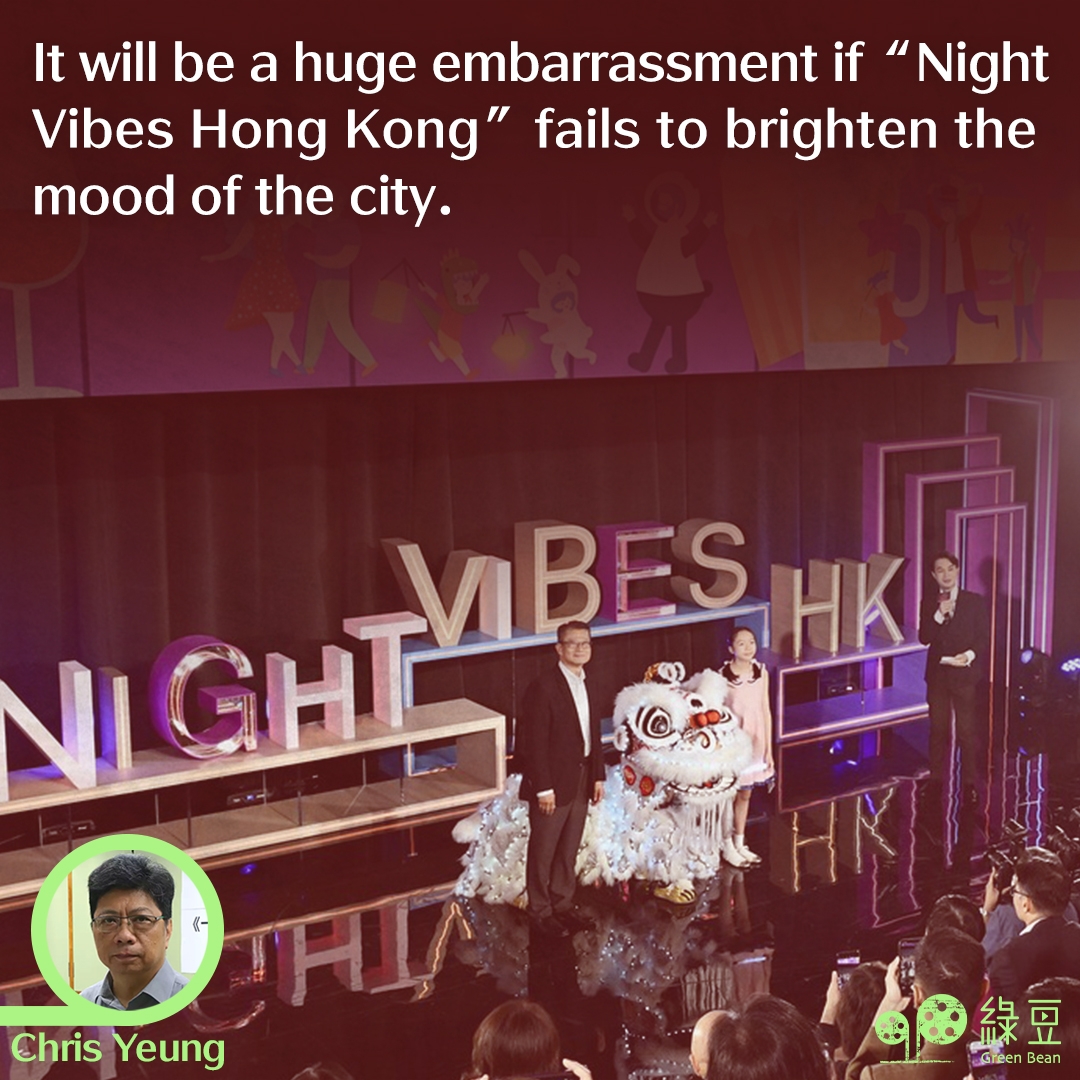Looking for glitters in HK nightlife

Chinese President Xi Jinping called for a “new chapter” in Hong Kong under John Lee when he traveled to Beijing to receive his official letter of appointment from Premier Li Keqiang in May last year. Lee was sworn in two months later on July 1.
Hong Kong, Xi said when meeting Lee, has “returned from chaos to stability” and was moving “from stability to prosperity.”
With Covid-19 restrictions lifted one after another beginning early this year and the normalisation of cross-border travels, hopes were high that Hong Kong would soon return to normal with social stability followed by economic prosperity.
Nine months on, the state of the city is anything but normal.
If Hong Kong is now arguably more stable politically and socially compared with 2019 when anti-government protests engulfed the city, its economy is in real trouble.
Once dubbed as a “city that never sleeps,” it could not be more ironic that the John Lee government’s promotion campaign launched at the waterfront in West Kowloon on Thursday evening was entitled “Night Vibes Hong Kong.”
Speaking at the opening ceremony, Financial Secretary Paul Chan Mo-po announced a list of events aimed to revitalise the city’s nightlife to help boost the economy.
They include waterfront bazaars, evening attractions at theme parks, longer opening hours of museums, free entry to racecourse during evening races, discount tickets for night showings at cinemas and live broadcasts of English Premier League soccer matches at shopping centres.
Also among the included activities are regular events, such as the National Day fireworks, Wine & Dine Festival, Tai Hang Fire Dragon Dance later this month and the New Year’s Eve countdown. Some will be held for the first time after the pandemic.
John Lee said earlier the return of fireworks and countdown at both sides of the Victoria Park could showcase the city’s return to normal, benchmarked the pre-pandemic Hong Kong.
Based on the city’s track record, the Government and the business sector could be pardoned for believing that the city would be able to bounce back soon from the pandemic and political chaos as it had done so after the Sars outbreak in 2003 and the Occupy Central in 2014.
Despite publicity campaigns entitled “Hello Hong Kong”, “Happy Hong Kong” rolled out one after another since early this year, hopes for a quick return from stability to prosperity have been proven to be wishful thinking.
Latest tourism figures published last week show the total number of visitors in August were still below the pre-pandemic average. Of August’s 4.1 million visitors, 3.4 million – or 84 per cent – were from mainland China.
Tourism, one of the four pillars of the economy, has suffered from a double blow, namely a slow return of visitors and a drop of tourism spending. Tourism industry figures said mainland visitors now tend to stay shorter, if at all, and spend less. The number of foreign visitors, meanwhile, has steadily dropped.
The slow recovery of tourism aside, the slowing economy partly attributed to the mainland economy and the lacklustre property and stock markets have weakened the fundamentals of the economy.
The dimming of the glitters of the city’s nightlife is the result, not the cause, of the slowing economy.
Other factors, including a change of lifestyle after the pandemic with people dining less outside and a new wave of migration, of which many are in their 20s, 30s and 40s with spending power, are adding more misery to sectors such as catering, entertainment and retail.
Faced with enormous difficulty in revitalising the economy, the Government has no choice but to heed calls for doing something to enliven the so-called “night-time economy.”
This is despite the gloomy assessment by many people in various walks of life that the practical benefits of “Night Vibes Hong Kong” will be insignificant.
John Lee and his top aides may understand that well. But they also know well they must be seen to be able to put an end to the political and economic turbulence in the past four years and take the SAR to a new stage of development.
Now that the central authorities have already done a big part in taming the opposition, the Lee administration is facing growing pressure to facilitate economic growth and bring a better life to the people.
It will be a huge embarrassment if “Night Vibes Hong Kong” fails to brighten the mood of the city.
But in view of the abnormal vibes in the city, it sounds naive to believe that a package of events and activities, discounts and consumption vouchers can restore pre-2019 Hong Kong. The grim reality is that it never will.
▌[At Large] About the Author
Chris Yeung is a veteran journalist, a founder and chief writer of the now-disbanded CitizenNews; he now runs a daily news commentary channel on Youtube. He had formerly worked with the South China Morning Post and the Hong Kong Economic Journal.